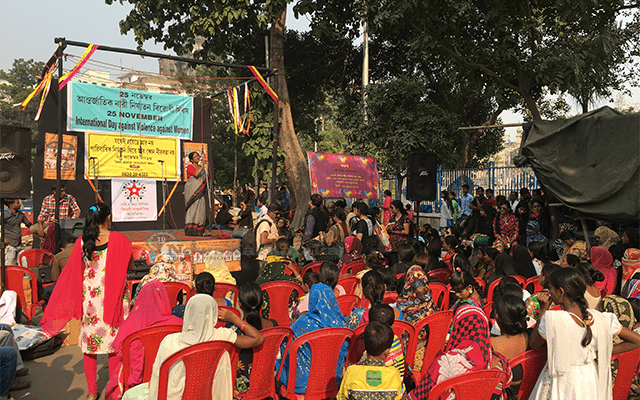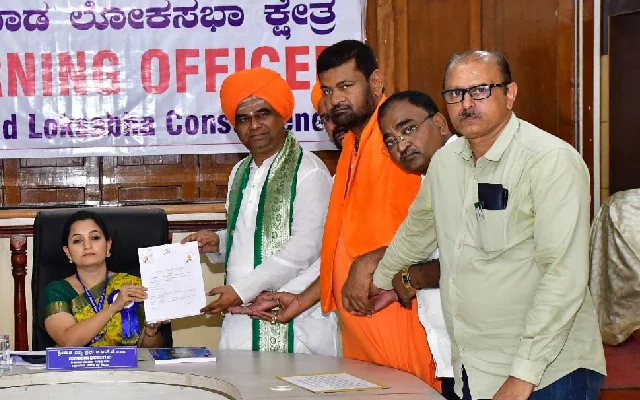Women’s rights, women empowerment, crime and discrimination against women, and gender equality have been, time and again, discussed, debated about as well as recognised as one of the most important goals to achieve as a society. Swayam is an NGO trying to make a difference in the lives of millions of women, especially those on a backfoot, either physically, socially, mentally, psychologically, professionally, or economically. Swayam was established and registered as a public charitable trust in Kolkata, India, in 1995. Since then, the organisation and the women it supports have grown from strength to strength, making Swayam one of the leading organisations of its kind in India.
In an exclusive interview with NewsKarnataka, Amrita Das Gupta, Associate Director, as well as Sriya Satuluri, Case Work Associate, spoke about the journey of Swayam on behalf of its team. They informed that the NGO is a feminist women’s rights organisation that envisions a non-discriminatory, violence-free, and gender-equal society. “The organisational mission is to end discrimination and violence against women, advance women’s rights and facilitate women’s empowerment,” the team added.
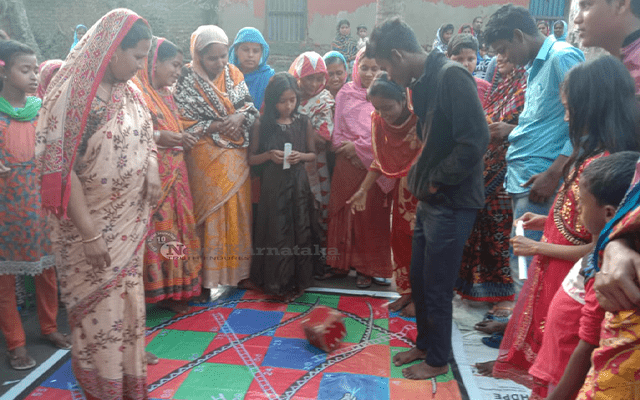
Through their Direct Support Services, the team of Swayam asserted that the facilitation of the empowerment of women survivors of violence is assured, enabling them to become self-confident, self-sufficient, and self-reliant. Additionally, their prevention work and awareness-building programmes generate discussion, debate, and action in the society to challenge social norms, values, and systems that deem discrimination and violence against women and girls acceptable.
What makes Swayam different?
In conversation about the uniqueness of the NGO, Gupta contended that it is one of the few NGO(s) that provides women with holistic support services to address their diverse and multiple needs. She further explained that being subjected to violence is highly traumatic. If women have to run from pillar to post and navigate the different systems alone for justice, it can be a harrowing experience for them. Through its array of individual and group services, including but not limited to legal assistance, mental health support, economic empowerment, the building of social support systems, and so on, Swayam provides a one-stop platform for women survivors of violence, their children, and families seeking relief and justice.
“Swayam is one of the pioneering organisations that has integrated mental health within the work with survivors and not as a stand-alone service. This has helped us develop robust mental health individual and group support services over the last 26 years. Besides the work with survivors, Swayam has always used a mental health lens to address all other aspects of our work within the organisation and with other beneficiaries. Swayam has, from its inception, developed various individual and group support for staff members to promote self-care and well-being. These techniques and services developed since 1995 have helped strengthen the organisation and our work,” Satuluri maintained.
How often does a women-centric and women empowerment-based organisation include work with men and boys? Perhaps, never. Swayam is changing that. By having work with men, it aims to promote gender equality and prevent violence against women. The primary goal is to make men and boys understand the social structures that determine and perpetuate gender inequality and violence against women and girls and appreciate how their lives can be enhanced if there is a reduction in crime rates and discrimination in society. “Swayam hopes to transform men and boys’ patriarchal attitudes and behaviors and build their leadership to act as change agents for equality. This will help capacitate and empower women and girls, men and boys in the same community to work together towards building a gender-equal and violence-free community,” the Associate Director claimed.
Swayam translates to Oneself
Swayam means ‘Oneself’ substantiates the NGO’s mission and vision. It embodies independence, individuality and empowers women to unlock their full potential. Empowerment is at the core of Swayam’s work with survivors and community women. Swayam believes in the inherent strength of women to overcome obstacles and speak up! “We support survivors to become agents of change. We have a survivor-led theatre group, a music group, and a quarterly magazine written and edited by survivors called Prayas. Nari Adhikar Samta Manch (NAPM) is a women’s collective composed of women who came as survivors to Swayam. With training and support from Swayam, they now reach out and assist other women in situations of violence. The music and theatre groups write and perform plays on women’s issues and are integral to our awareness programmes. Prayas features reflections on issues that women wish to raise, including inter-personal experiences, environmental concerns, and communal harmony,” the team of the NGO mentioned.
The Growth Graph
The Case Work Associate contended that for the last 26 years, Swayam, through its direct support to women survivors of violence and their children, has tried to empower women, support them, and make them aware of their rights to lead a violence-free life. On the other hand, Swayam has actively been addressing gender inequality and patriarchal norms in our society through training and capacity building, research and publication, awareness programmes, and working with like-minded organisations and networks to advocate with the State.
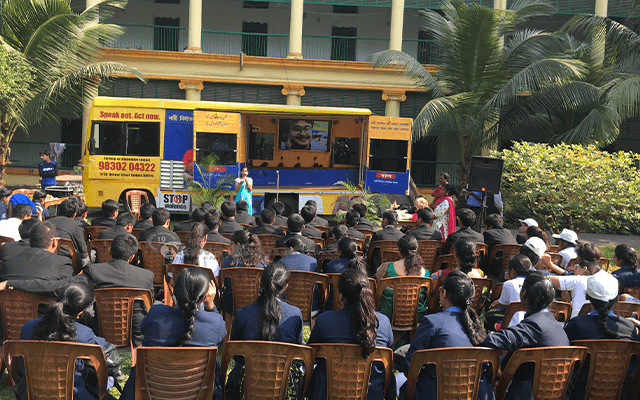
“Over the last 26 years, we have grown from 2 team members to a strong team of 46 team members and 8 consultants. We started work in 1995 in a small office in Palm Avenue and now work across three locations – Hazra office and the urban and rural offices in Metiabruz and Diamond Harbour,” Satuluri added.
The pandemic: An Inevitable Impact
Community services and NGOs that functioned primarily through groundwork and offline tasks faced a significant backlash in establishing its vision during the pandemic. Covid – 19 impacted lives around the globe. It adversely affected Swayam, its work with survivors of violence. The team explained that the community members are primarily daily wage laborers, some run small businesses and others work in the fields. The lockdown stopped all livelihood options and created a crisis for rations amongst all beneficiary groups. The complete lockdown impacted mobility and the ability to physically reach out to the community members and survivors. Swayam’s work with survivors was affected adversely due to mobility issues, lack of available State services, including Protection Officers, courts, shelter homes, and so on. Globally violence had increased manifold during the lockdown. “At Swayam, we had recorded an approximate 70 per cent increase in violence during the pandemic,” Gupta disclosed. Swayam has used creative and innovative ways to continue their life-changing work and support different beneficiaries.
Social Media: An Important Tool
The team of Swayam alluded that social media has played a significant role in their mission. Through different social media such as Instagram, Facebook as well as Twitter, Swayam creates its feed and posts stories of the work being done, thus ensuring that their services are shared among larger masses to spread awareness and to increase the organization’s visibility so that many women facing violence can approach the organisation for help and support. This was especially evident during the lockdowns when Swayam made different virtual interfaces and marketing to elevate its helplines in connecting with women survivors pan India. Furthermore, Swayam utilises social media to launch and promote various online campaigns to stop violence and discrimination against women and girls and challenge patriarchal norms and values. This allows the organisation to reach a larger audience while generating visually appealing material that has a more significant impact on the viewer.
Is virtual help effective in real-time and space?
Swayam’s ability to physically provide support services to survivors was severely hampered by the lockdowns caused by Covid – 19. They did, nevertheless, force Swayam to adapt and pioneer new methods and strategies for reaching out to the survivors. “Technology was the saving grace during the pandemic. During this crisis, Swayam utilized technology in ways never thought possible! We used phone features like conference calls, WhatsApp, and online platforms like ZOOM, to reach women survivors and provide support,” Gupta said.
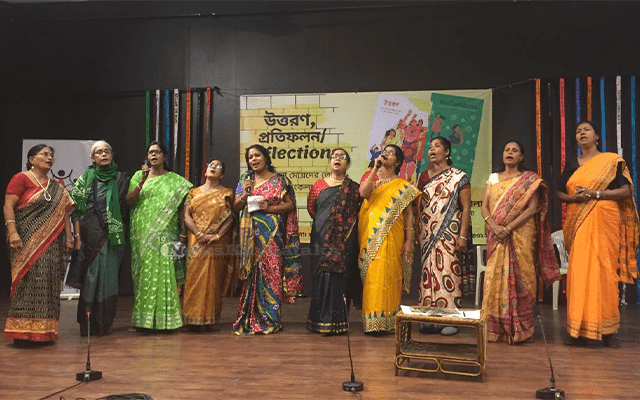
The Associate Director elucidated that Swayam popularised their 3 existing helplines to reach out to new women who needed support across the state and the country, through three campaigns on DV run on social media – Facebook, Twitter, Instagram; on the radio, through television, posters, and other women’s organisations. The campaigns aimed to highlight the issue locally and nationally and have people report and act. As the lockdown progressed, Swayam hosted a total of 15 helplines! One among them is dedicated to women’s mental health. “Through conference calls, we connected survivors with the police and intervened to ensure police action. Similarly, we provided legal advice to survivors through conference calls with lawyers,” she added. Swayam also facilitated counseling and therapy to survivors over the phone with their mental health consultants, understanding that many more women were stepping forward to request therapy as they seemed more comfortable speaking about mental health issues over the phone than sitting across a table talking to the therapist in person.
“Online platforms had their drawbacks, but we reinforced these activities by forming WhatsApp groups amongst the survivors to continue communicating. Hence even though virtual support is not as robust as in-person support, it is the next best option during these unique times,” Satuluri concluded.
Some Challenges
Despite the team’s collective success in addressing violence against women, Swayam and several women’s rights groups have encountered some challenges. They witnessed the emergence of new trends in violence against women, which adds to the complexity of the ongoing problem. With the development of smartphones, cybercrime, image morphing, and digital interrelations have brought an entirely new set of challenges for women’s organisations. The nature and magnitude of abuse have increased as a consequence of the lack of sex education, increased moral policing, and unfettered access to pornography. Swayam also saw an increase in gang rapes, including filming, posting videos, and the murder of women.
“Even though we have seen progress and sensitisation on many fronts, violence against women particularly domestic violence is still largely condoned by society, considered a private matter, and women are blamed for the violence they face. The patriarchal mindset and gender discriminatory attitudes of family, society, and state agencies negatively impact women’s rights. Limited and reduced budgets were kept aside to implement laws and policies to address women’s rights, and violence against women continues to show state agencies’ lack of commitment towards these issues,” the team voiced.
Finding the key to the door
The Case Work Associate mentioned that to combat the challenges, Swayam has adopted a multi-pronged approach to addressing inequality and violence against women and their children and works at three broad levels: the individual, the institutional, and the societal. This holistic approach is comprehensive that discrimination and violence against women is a structural problem deep-rooted in patriarchal ideology. It can be solved by working with different institutions and structures perpetuating patriarchy.
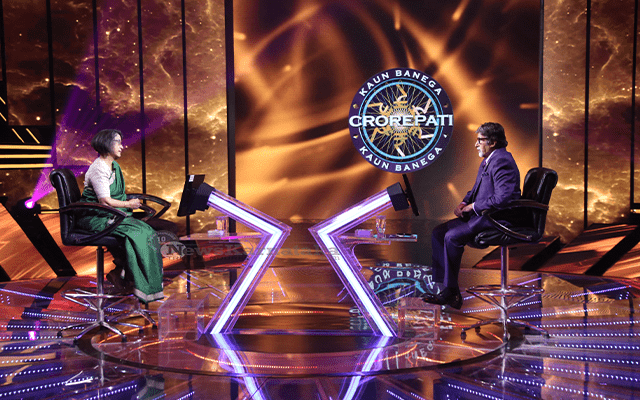
“At the same time, individual women need support at multiple levels to overcome the issues they face. We, therefore, need to work both within and outside the home to create an environment where violence against women is unacceptable,” Satuluri proposed. Swayam believes in the collective strength of like-minded organisations and networks and collaborates to address these issues with the larger public and advocate with the State.
Future endeavors
For the upcoming years, Swayam aims to empower and develop the leadership and capacities of survivors, the community, women, girls, men, and boys to prevent and address inequality, violence, and discrimination against women in public and private spheres. “This will be achieved by increasing access to support services to women who are survivors of violence, their children, and their families, and men and boys to participate in reducing gender-based violence, and increasing women’s ability to hold local governance institutions accountable.” Ms. Gupta specified. Swayam intends to increase access to employment, and income-generating activities for vulnerable women, a need specifically addressed during the pandemic. Expanding the state’s responsiveness to advance women’s rights, address violence against women, and develop recognition as a quality knowledge and resource organisation on gender justice in South Asia are also included. “Swayam plans to conduct research and collate the knowledge and best practices it has garnered and bring them out as publications to share with other organisations in the field. Over the next years, we will also provide long-term capacity-building support to NGOs, CBOs, teachers, students, community youth, corporates, state agencies like the POs, Police, Lawyers, and local governance institutions. We will consolidate years of experience and develop modules, tools, and mechanisms to conduct training with various constituencies,” the team of Swayam signed off.








